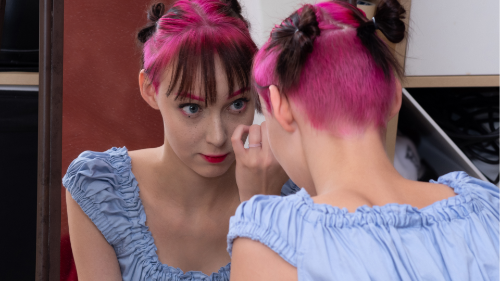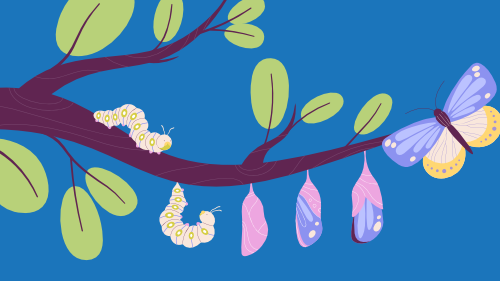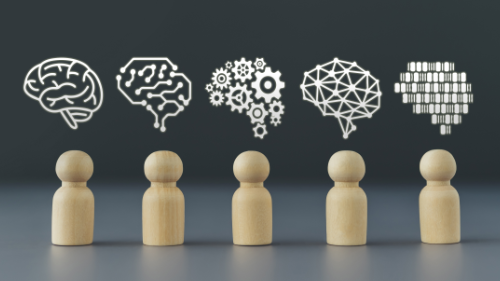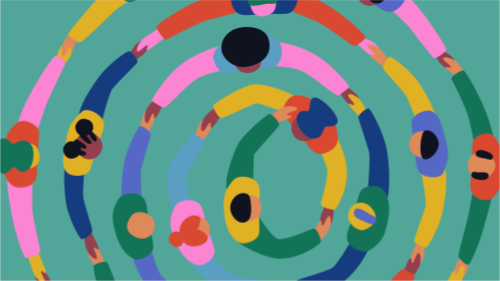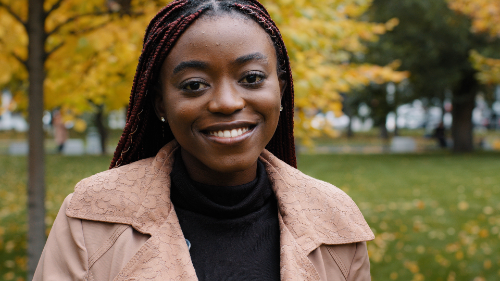Supporting Healthy Development
Healthy adolescent development occurs in many different domains — physical, sexual, cognitive, social, emotional, and spiritual. During adolescence, youth are challenged to accomplish major developmental tasks, such as adjusting to a changing body, learning to manage greater independence and responsibility, and developing a sense of self.
The activities and curricula below will help program providers work with youth to promote healthy development. For resources on closely related topics, see Building Healthy Life Skills.
Program Activities and Curricula
Adolescent Development
One Circle Foundation Models
One Circle Foundation offers three structured support group models for youth — Girls Circle (for girls and youth who identify with female development), The Council for Boys and Young Men, and Unity Circle (for youth of all genders). With a focus on positive youth development, One Circle programs employ a strengths-based approach and motivational interviewing strategies.
Resources for Mentoring Programs
The National Mentoring Resource Center provides a collection of mentoring handbooks, curricula, manuals, and other resources that practitioners can use to implement and further develop program practices.
Rights, Respect, Responsibility
Offered by Advocates for Youth, this K-12 curriculum includes lesson plans on understanding our bodies, bullying and respect, friendship, gender roles, and sexual health topics, among others. Lesson plans for grades 4-8 may also incorporate videos from AMAZE.
Let's Talk: Runaway Prevention Curriculum
The National Runaway Switchboard provides this runaway prevention curriculum with strengths-based activities on identity and value exploration; risk behaviors and decision making; relationships to peers, family, and community; and emotional well-being and control.
Youth Communication
Youth Communication publishes stories written by teens about the issues they face. The stories can be used as tools to engage young people in conversations about a range of topics and developmental challenges. Curricula are available for purchase on topics including social and emotional learning in high school (In Real Life), social and emotional learning in middle school (#trending), positive masculinity (Real Men 2.0), girls' empowerment (Real As Me), and career readiness (On My Way).
Learning for Justice: Learning Plans
A project of the Southern Poverty Law Center, Learning for Justice offers anti-bias classroom activities and lesson plans on a range of topics such as race and ethnicity, ability, gender and sexual identity, and other social justice issues.
Physical Health
Guidelines for Healthy Food and Beverages for Adolescent Health Programs
Developed by ACT for Youth for program providers funded by the New York State Department of Health, these nutrition guidelines give practical ideas for offering healthy food choices, raising awareness about nutrition, and engaging participants in menu planning and food preparation.
Quick and Tasty Recipes for Healthy Youth
This collection of easy-to-follow, healthy recipes was developed by the NYS 4-H Youth Development and Cornell University Division of Nutritional Sciences.
Around the Table
Developed by Leah's Pantry in California, Around the Table is a six-week curriculum designed for groups of 7-15 youth, aged 14-21. The program aims to build food literacy while integrating social emotional learning and using trauma-sensitive facilitation. Participants enjoy hands-on cooking, facilitated conversations, and interactive activities that support healthy connections to food, self, and community. Facilitator training (self-paced and virtual) is required. This program is part of the SNAP-Ed Library.
Teen Battle Chef
Teen Battle Chef (TBC) is a hands-on culinary skills and nutrition education program for middle and high school students. The curriculum includes step-by-step training modules, lesson plans, and plant-based recipes (with meat as a condiment). Distance learning and live training sessions are available for instructors. Developed by Family Cook Productions, the program is part of the SNAP-Ed Library.
Planning to Thrive
In this project from the Buck Institute for Education, students reflect on their health and develop personal health goals. They craft "Healthy Mind and Body" action plans and put the plans into practice, tracking their progress and documenting their reflections in a journal. Simultaneously, students work on teams to develop and support an action plan for a real or fictional client. Registration required.
Social and Emotional Development
Social and Emotional Learning (SEL) Toolkit
Social and Emotional Learning (SEL) is a student-centered approach that emphasizes building on young people's strengths; developing skills through hands-on, experiential learning; giving young people voice in the learning process; and supporting youth development through positive relationships with adults. ACT for Youth's SEL Toolkit connects to resources including manuals, activities, fact sheets, videos, and websites.
Cognitive Development
Responsible Decision Making
In this part of the SEL Toolkit, ACT for Youth links to tools and resources for professionals who seek to strengthen young people's problem-solving, critical thinking, and decision-making skills.
STEM in Your Program
Here, the Afterschool Alliance links to curricula and activities for the out-of-school-time environment.
Critical Thinking
Whether via classroom discussions, analysis of written text, higher-order questioning, or other strategies, these activities from Edutopia will help students go deeper with their thinking.
